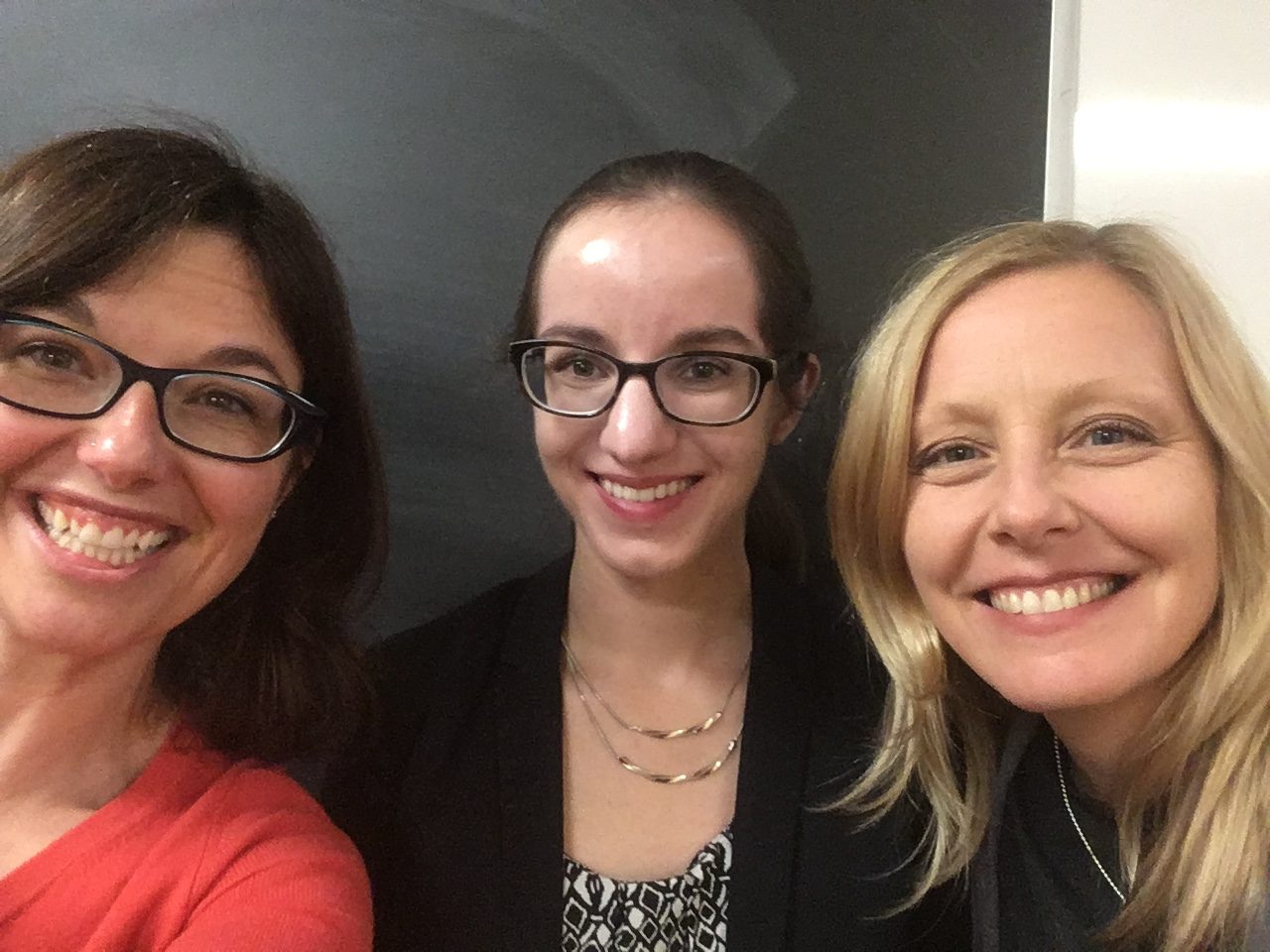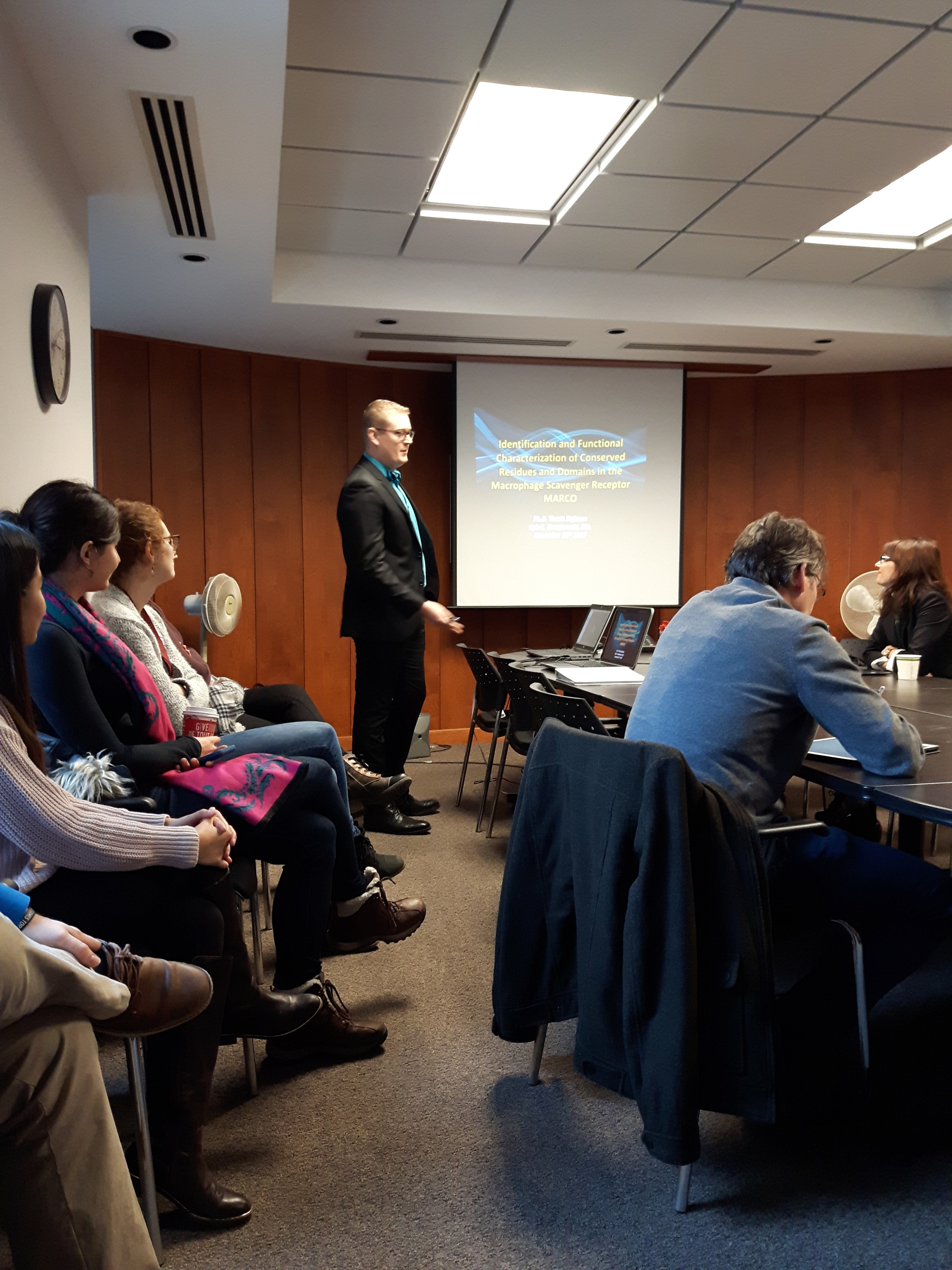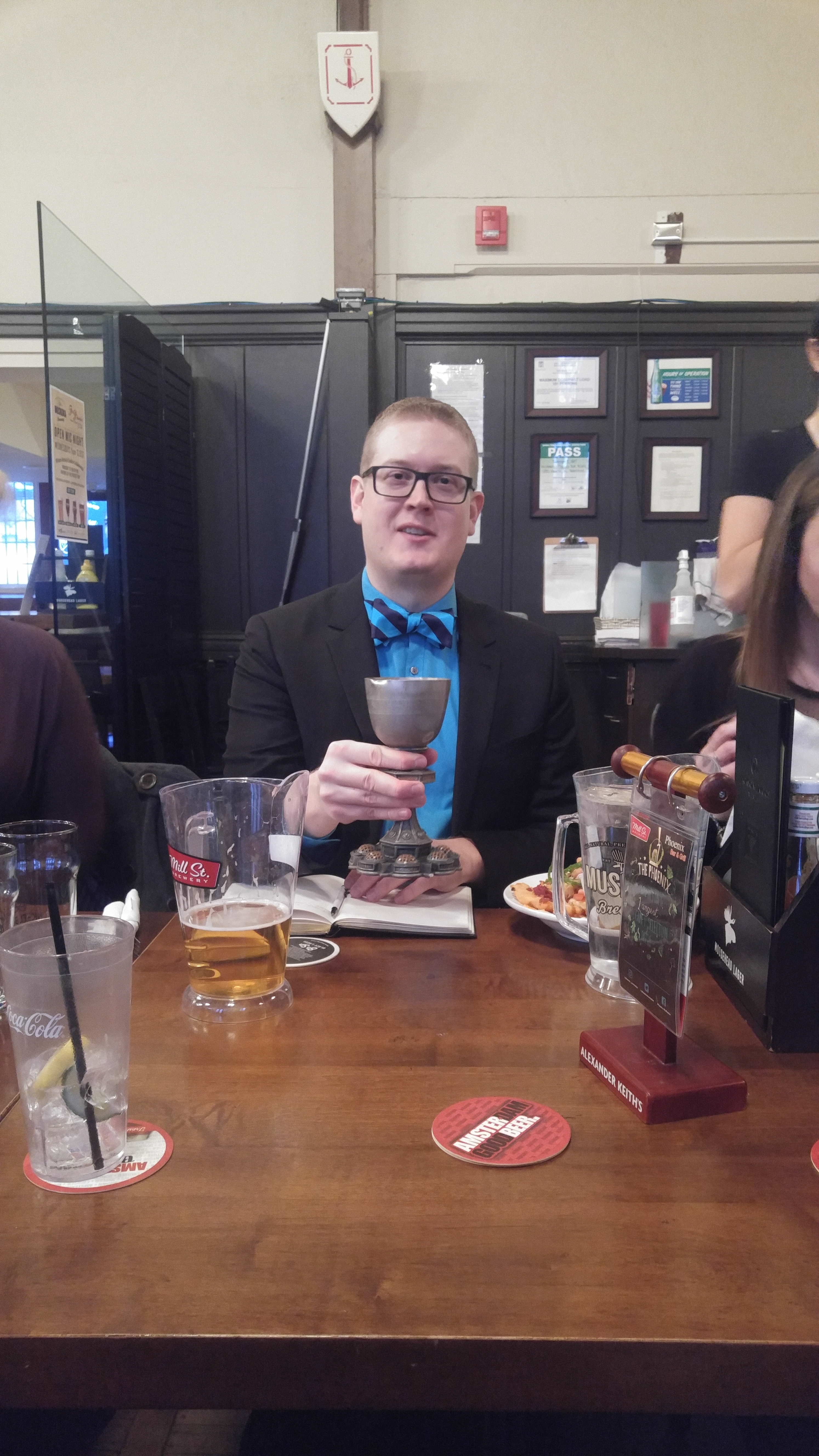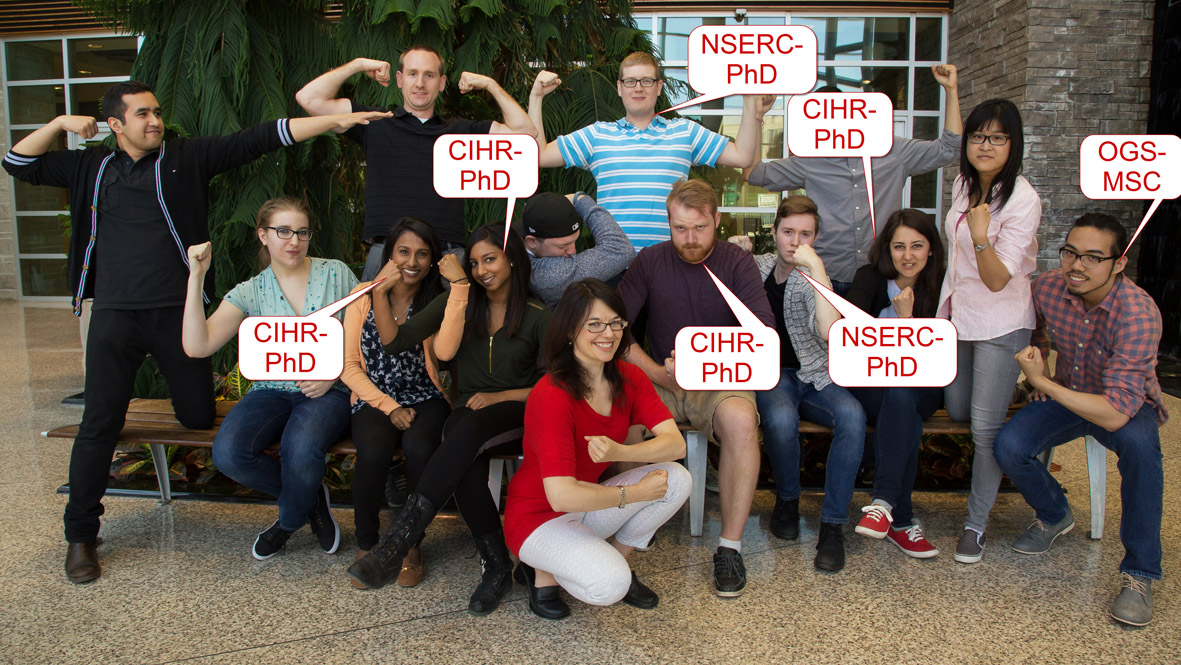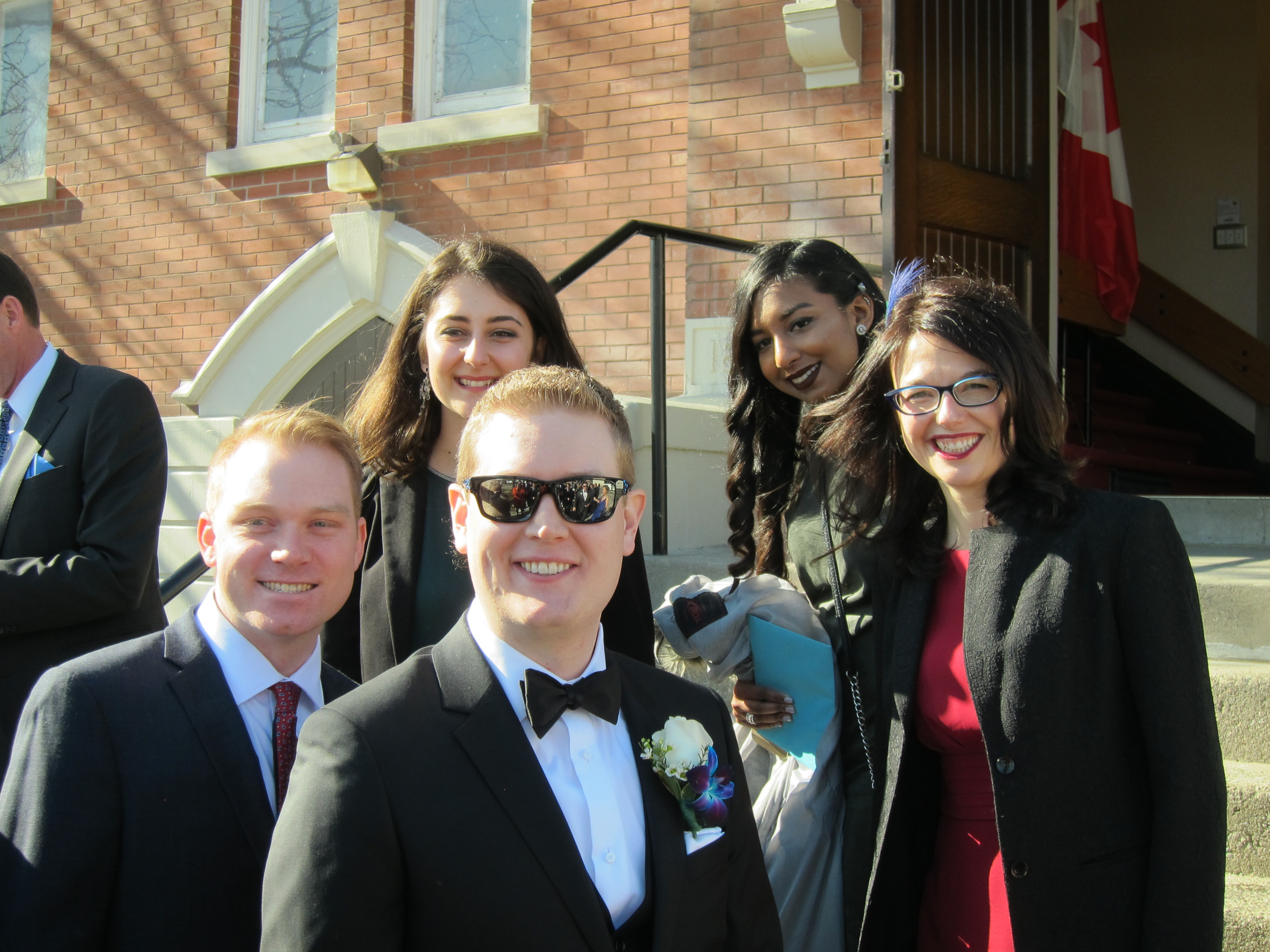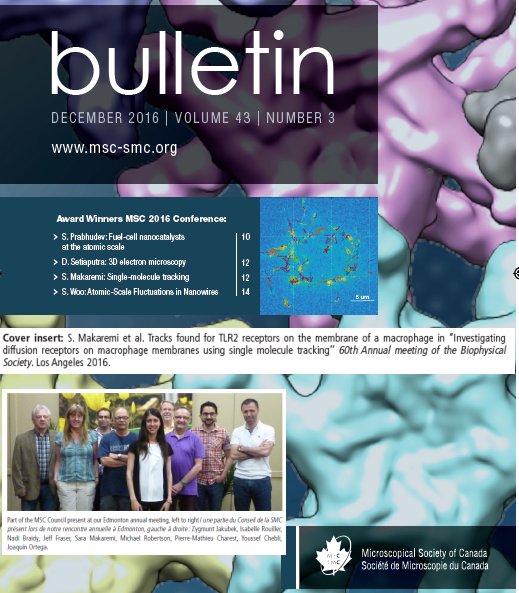Tag Archives: graduate students
Kyle Novakowski is the Bowdish lab’s newest PhD!
Kyle Novakowski successfully defended his thesis “IDENTIFICATION AND FUNCTIONAL CHARACTERIZATION OF CONSERVED RESIDUES AND DOMAINS IN THE MACROPHAGE SCAVENGER RECEPTOR MARCO” to become the Bowdish lab’s 4th PhD student. He’ll be joining Turnstone Biologics as a PhD scientist. We wish him very well in his future endeavours. Congratulations Dr. Novakowski!
Publication: Monocyte activation is elevated in women with knee-osteoarthritis and associated with inflammation, BMI and pain.
Dr. Dawn Bowdish and her PhD student Dessi Loukov collaborated with Dr. Monica Maly and Sara Karampatos (Rehabilitation Science) and found that monocytes were more activated and pro-inflammatory in women with osteoarthritis, and that elevated inflammation and body mass index were associated with increased monocyte activation. Further, the team found that women with osteoarthritis and more activated monocytes experienced worse pain than individuals with less activated monocytes. These findings highlight the importance of modulating inflammation and body mass to manage osteoarthritis and open up new avenues for therapeutic research.
Read the full publication in the Osteoarthritis Research Society International (OARSI) Journal
As featured in Eureka Alert: https://www.eurekalert.org/pub_releases/2017-11/mu-rul112717.php
Publication: Human-specific mutations and positively-selected sites in MARCO confer functional changes.
First author on the publication, PhD student Kyle Novakowski of Dr. Dawn Bowdish’s lab.
A common element that links ancient fish that dwell in the darkest depths of the oceans to land mammals, Neanderthals, and humans is the necessity to defend against pathogens. Hundreds of millions of years of evolution have shaped how our innate immune cells, such as macrophages, detect and destroy microorganisms.
In a new study led by Dr. Dawn Bowdish (in collaboration with Dr. Brian Golding) and her PhD student Kyle Novakowski, the team identified novel sites within a macrophage receptor, MARCO, that are under positive selection and are human-specific. The team demonstrated the importance of these sites by site-directed mutation and showed a reduction in cellular binding and uptake of pathogens. These findings demonstrate how small genetic changes in humans can influence how we defend ourselves against pathogens.
Read the full publication in Oxford University Press.
Bowdish lab joins the circus.
The lab that plays together stays (late nights scienc-ing) together, which is why the Bowdish lab had our annual retreat at Zacada circus school. Here we got some very sore muscles and discussed our successes and challenges of the past year and what our goals and ambitious are for the following year. Go Team!
PDF and PhD position available.
The Bowdish lab is looking for new members to join our team! We currently have an opening for a post-doctoral fellow and a graduate student.
The PDF will project will involve investigating how the upper respiratory tract microbiome changes with age and declining immune function. Applicants must have a strong publication record in the field of immunology, microbiology, systems biology or molecular biology and applicants eligible for PDF funding from http://fhs.mcmaster.ca/mgdfa/ are particularly encouraged to apply (see link for eligibility). Experience in analysis of the microbiome or statistics of large/complex datasets are assets. Please provide a c.v. and a cover letter detailing your interest in the lab that includes contact details for references.
The graduate student position will be studying why aging macrophages are less able to kill bacteria. Applicants interested in beginning studies in January, May or Sept 2018 will be considered. Students aiming to pursue a PhD are preferred but exceptional MSc applicants will be considered. Previous research experience is strongly preferred. Candidates must have relevant courses in molecular/cellular biology, biochemistry, immunology or microbiology. Please include a transcript, a cover letter outlining your previous research experience and a list of references. Foreign students must have a scholarship to be considered.
Come join our strong team!
Success! PhD candidate Kyle Novakowski gets married.
Sara Makaremi’s PhD work featured in the Microscopical Society of Canada’s bulletin!
Sara is learning how macrophage receptors move through membranes using high resolution microscopy. Her beautiful work was featured in Decembers bulletin. Congratulations Sara!
For the full bulletin, see here.
Dawn discussed why she chose to go into a career in science in the IIDR’s Incubation Podcast Series
Fiona Whelan and Ryan Buensuceso, sit down with the IIDR’s Dr. Dawn Bowdish to discuss how and why she chose science as a career.
Hear the podcast here.
Twitter handles:
Fiona Whelan (@whelanfj)
Ryan Buensuceso (@rcbuensuceso)
Dr. Dawn Bowdish (@MsMacrophage)
Michael G. DeGroote Institute for Infectious Disease Research (IIDR) (@McMasterIIDR)
The Bowdish lab is the strongest lab at McMaster and we have the scholarship winners to prove it!
Who’s got the strongest lab at McMaster? I do! We’ve had a great run of success at the Bowdish lab with fully all of our students receiving prestigious scholarships! And that’s not to mention our other successes such as our summer scholarship winners (Jason Fan – IIDR), our students who got their degree and moved on to great things (Dr. Fan Fei – manager of Mass Spec facility, Dr. Mike Dorrington – PDF at the NIH), and our PDF, Dr. Chris Verschoor who got a faculty position!


